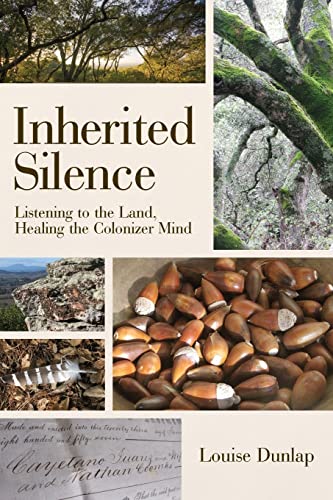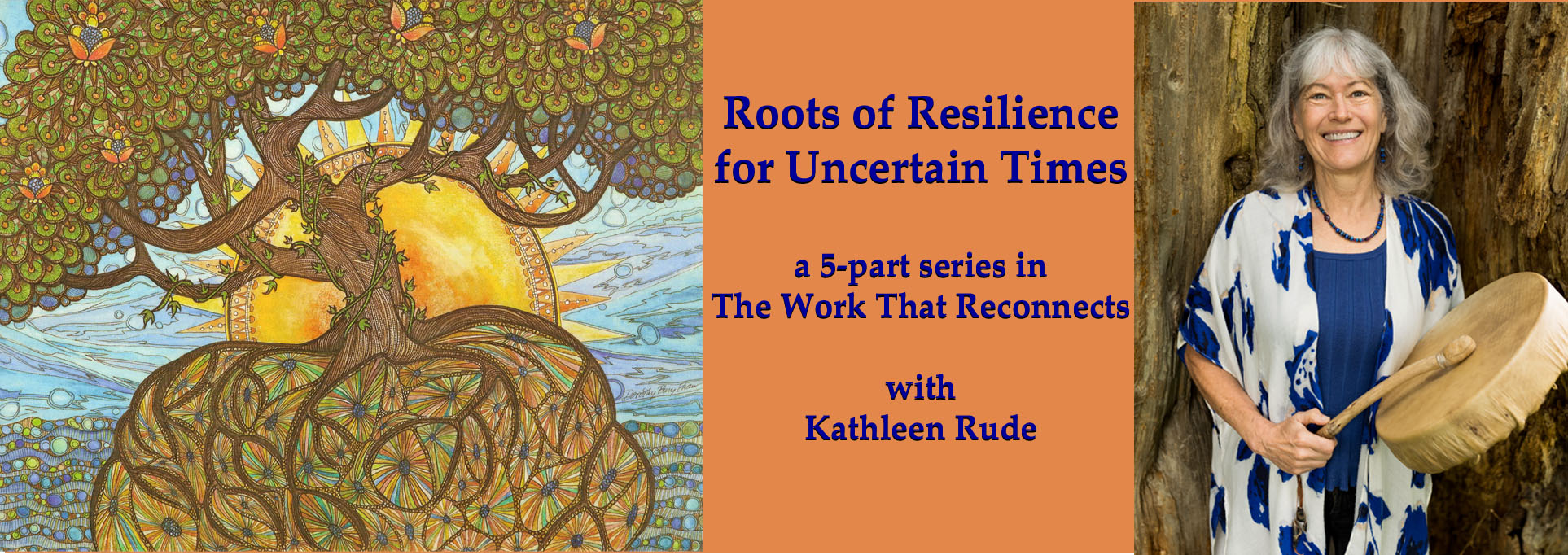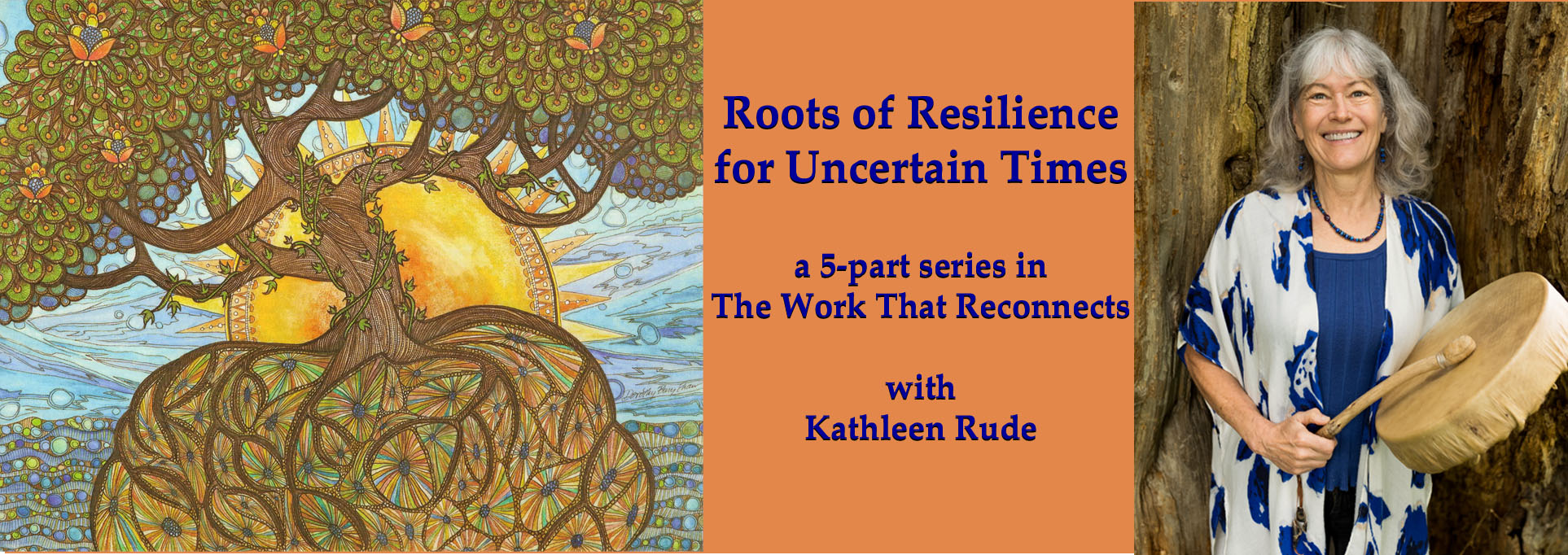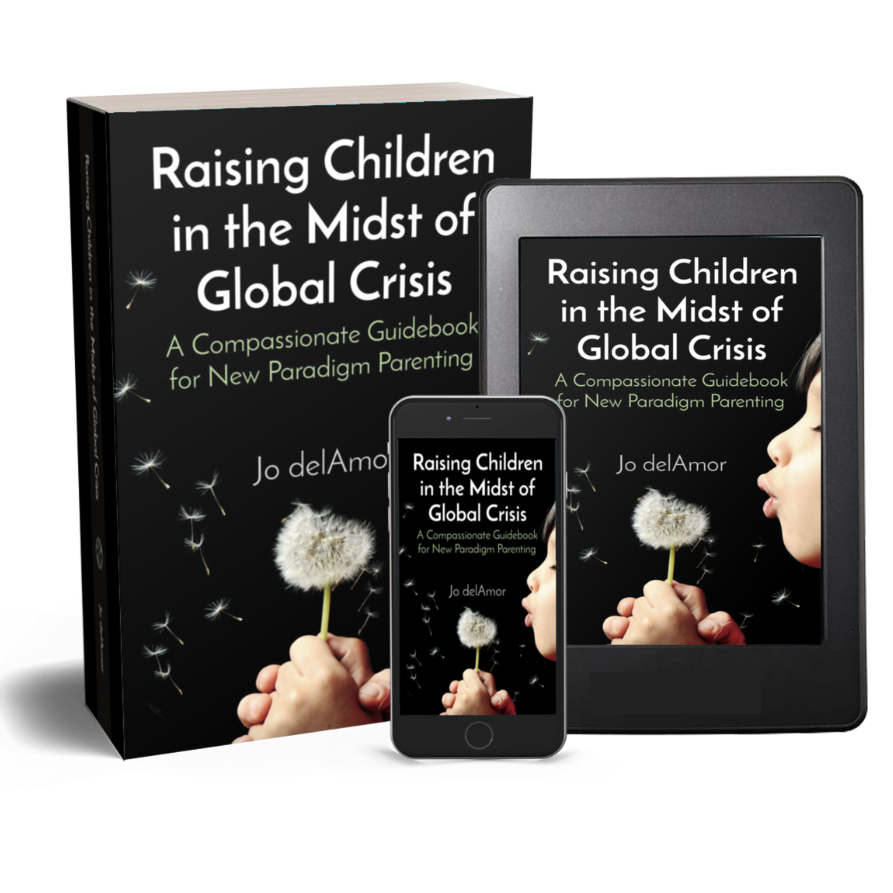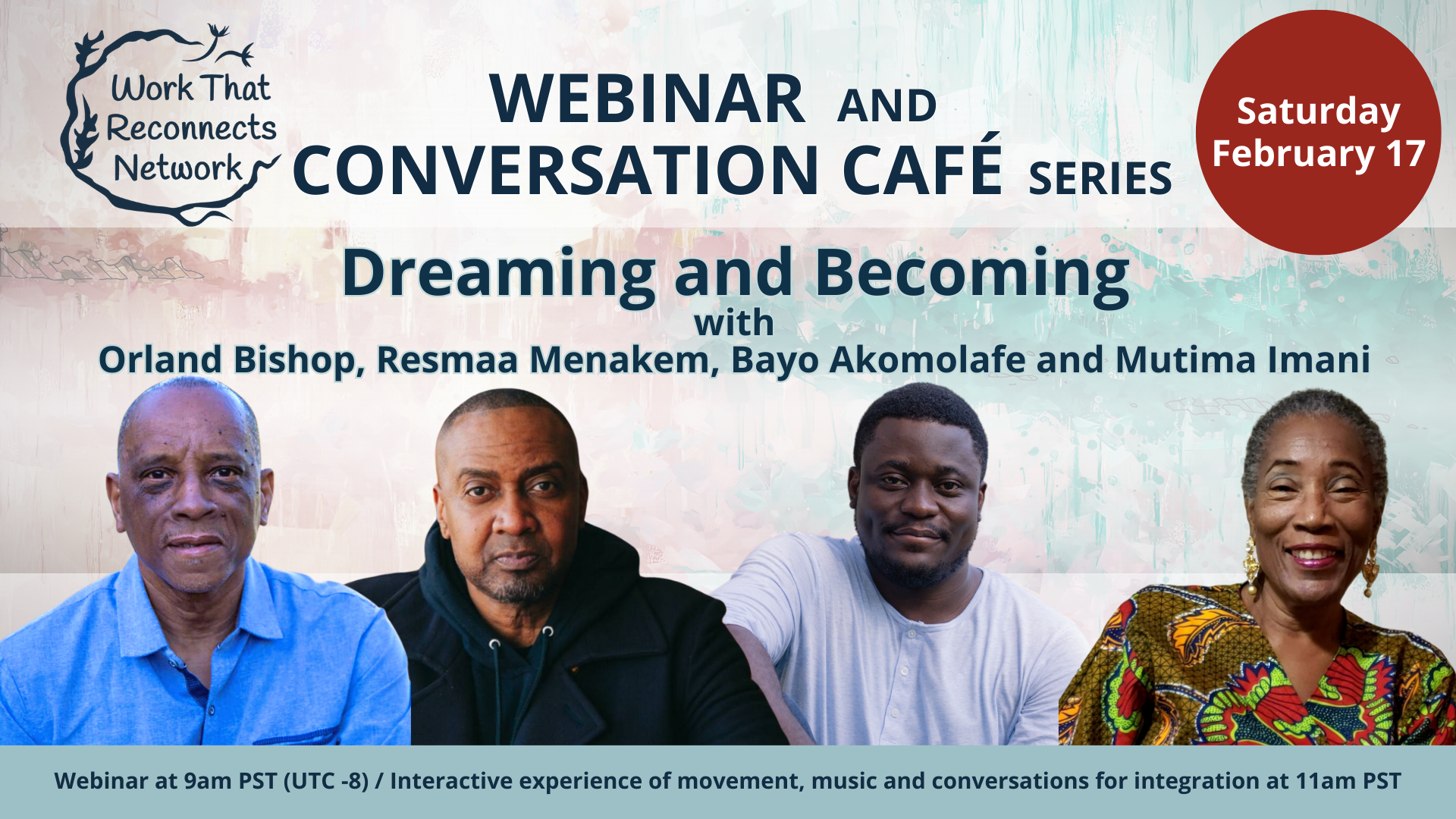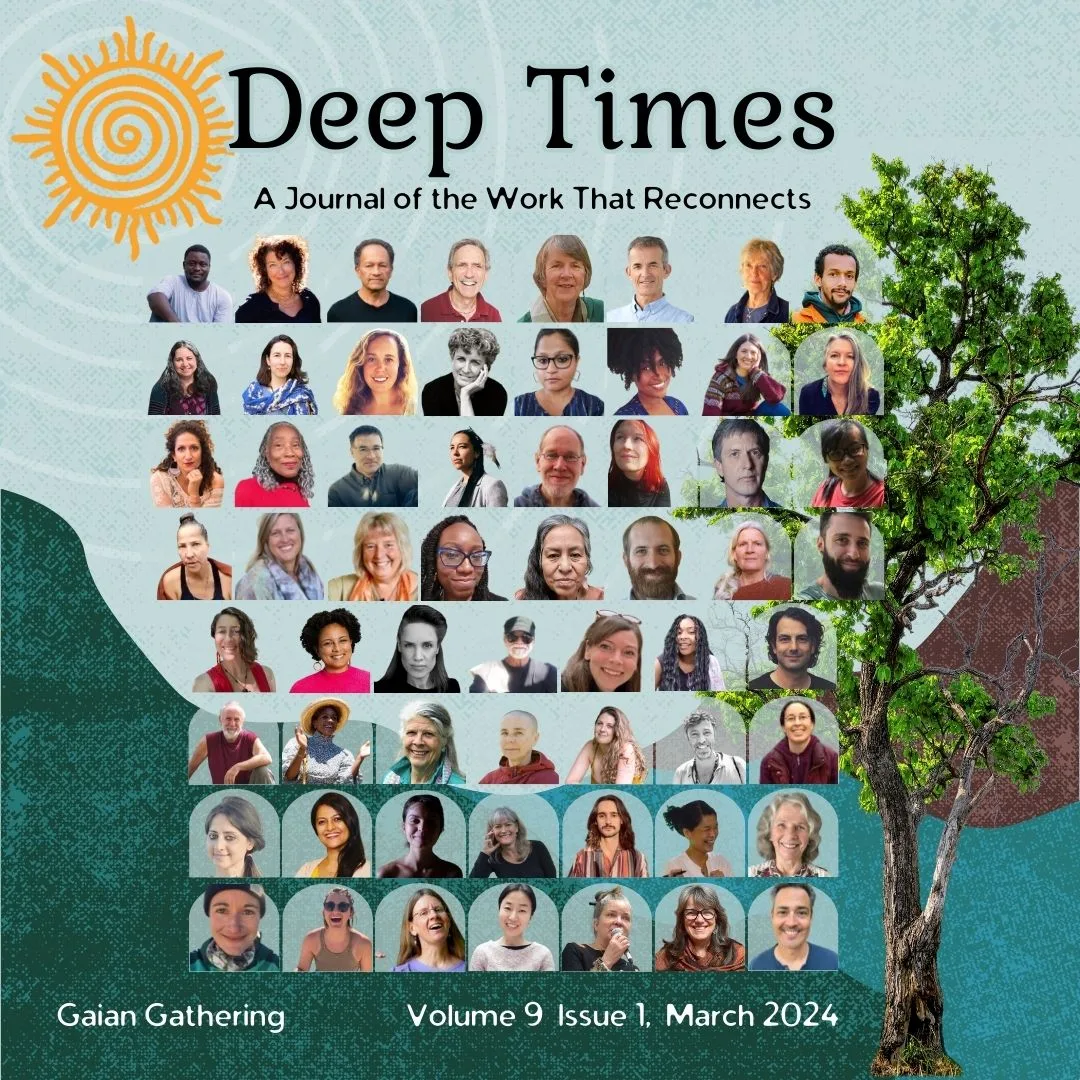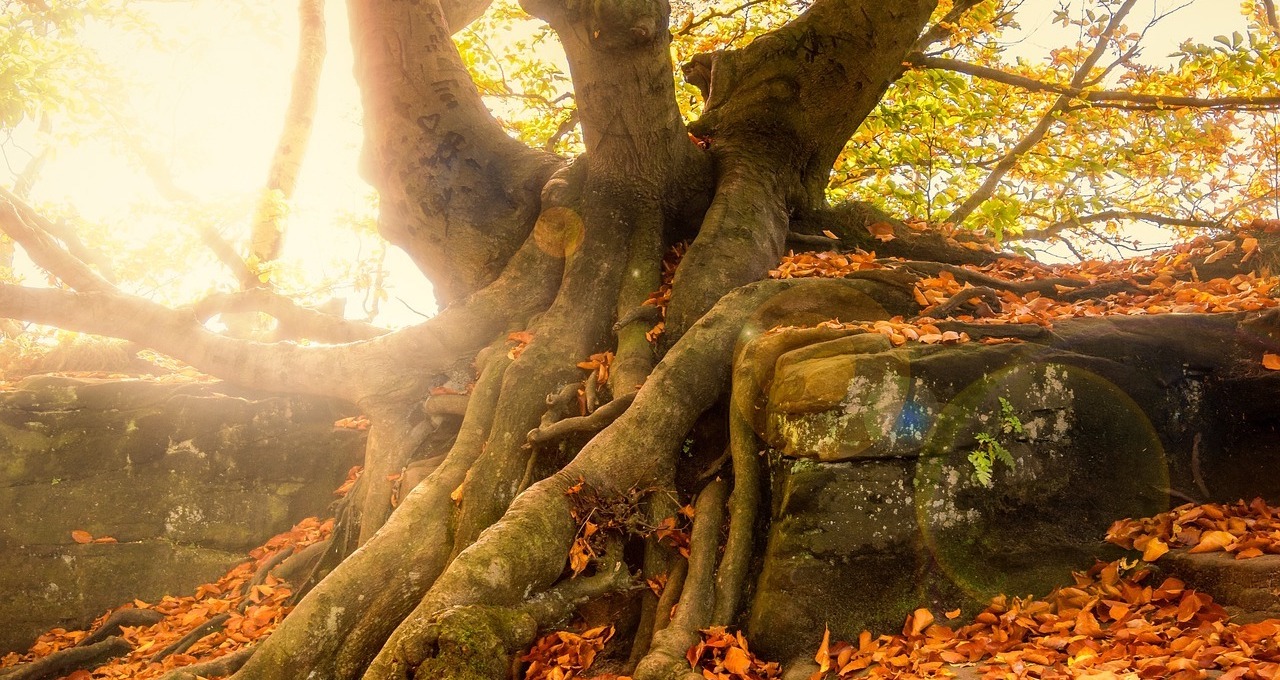- Practices
- Grounding in Gratitude
- Emerging Facilitators
- Facilitators
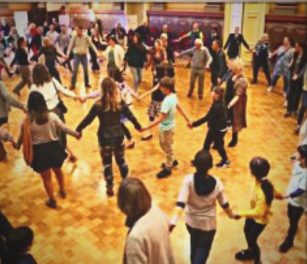
The Great Ball of Merit
from chapter 13 of Coming Back to Life by Joanna Macy and Molly Brown; second edition, published 2014. Please acknowledge the source when you use any of these practices.
Compassion, which we generally understand as grief in the grief of others, is but one side of the coin. The other side is joy in the joy of others — which Buddhists call mudita. To the extent that we allow ourselves to identify with the sufferings of others, we can identify with their strengths as well, building a sense of adequacy and resilience. We face a time of great challenge that demands of us more commitment, endurance and courage than we can dredge up out of our individual supply. We can learn to draw on the other neurons in the neural net. We can see them with gladness as a present resource, like money in the bank.
This practice is adapted from the “Meditation of Jubilation and Transformation” written down two thousands years ago at the outset of the Mahayana Buddhist tradition. You can find the original version in Chapter 6 of The Perfection of Wisdom in Eight Thousand Lines. We find it very useful today in two forms. The first one, which we use in workshops, is closer to the ancient practice. As you guide the meditation, remember to make the hand gestures.
Method
Relax and close your eyes. Open your awareness to all the beings who share with you this planet-time … in this town … in this country … and in other lands …. In your mind’s eye, behold their multitudes …. Now let your awareness open wider yet to encompass all beings who ever lived … of all species and creeds and walks of life, rich, poor, kings and beggars, saints and sinners …. See the vast vistas of these fellow-beings stretching into the distance like successive mountain ranges ….
Now consider that in each of these innumerable lives some act of merit was performed. No matter how stunted or deprived the life, there was a gesture of generosity, a gift of love, an act of valor or self-sacrifice … on the battlefield, or in the workplace, hospital or home …. From these beings in their endless multitudes arose actions of courage, kindness, of teaching and healing. Let yourself see these manifold and immeasurable acts of merit….
Now imagine you can sweep together these acts of merit … sweep them into a pile in front of you …. Use your hands …. Pile them up …. Pile them
into a heap, viewing it with gladness and gratitude … Now pat them into a ball …. It is the Great Ball of Merit …. Hold it now and weigh it in your hands …. Rejoice in it, knowing that no act of goodness is ever lost. It remains ever and always a present resource … a means for the transformation of life …. So now, with jubilation and gratitude, you turn that great ball … turn it over … over … into the healing of our world.
Variation
As we can learn from contemporary science and visualize in the holographic model of reality, our lives interpenetrate. In the fluid tapestry of space-time, there is at root no distinction between self and other. The acts and intentions of others are like seeds that can germinate and bear fruit through our own lives, as we take them into awareness and dedicate — or turn over — that awareness into the grace that empowers us all. Gautama, Jesus, Dorothy Day, Gandhi, Martin Luther King, Wangari Maathai, Nelson Mandela and countless heroes of our time — all can be part of our Ball of Merit, from which we can draw inspiration and strength. Other traditions feature notions similar to this, such as the Treasury of Merit in the Catholic Church.
The second, more workaday version of the Ball of Merit meditation helps us open to the powers in ordinary people around us. It is in direct contrast to the commonly accepted, patriarchal notion of power as something personally owned and exerted over others. The exercise enriches our attention to all we meet in our daily life, to view them with fresh openness and curiosity as to how they can enhance our Ball of Merit. We can play this inner game with someone opposite us on the bus or across the bargaining table. It is especially useful when dealing with a person with whom we are in conflict.
We can silently ask:
What does this person add to my Great Ball of Merit? What gifts of intellect can enrich our common store? What reserves of stubborn endurance can she or he offer? What flights of fancy or powers of love lurk behind those eyes? What kindness or courage hides in those lips, what healing in those hands?
Then, as with the Breathing Through exercise, we open ourselves to these strengths, inhaling our awareness of them, relishing their presence.
Too often we let our perceptions of the powers of others make us feel inadequate. Alongside an eloquent colleague, we can feel inarticulate; in the presence of an athlete, we can feel weak and clumsy; so we can come to resent both ourselves and the other person. In contrast, the practice of the Great Ball of Merit delivers us from comparison and envy. The gifts and good fortunes of others appear not as competing challenges, but as resources we can take pleasure in. We can learn to play detective, spying out treasures for the enhancement of life from even the unlikeliest material. Like air and sun and water, they form part of our common good.
In addition to releasing us from the mental cramp of envy, this practice offers two other rewards. One is pleasure in our own acuity, as our merit- detecting ability improves. The second is the response of others who, though ignorant of the game we are playing, sense something in our manner that invites them to disclose more of the person they can be.
